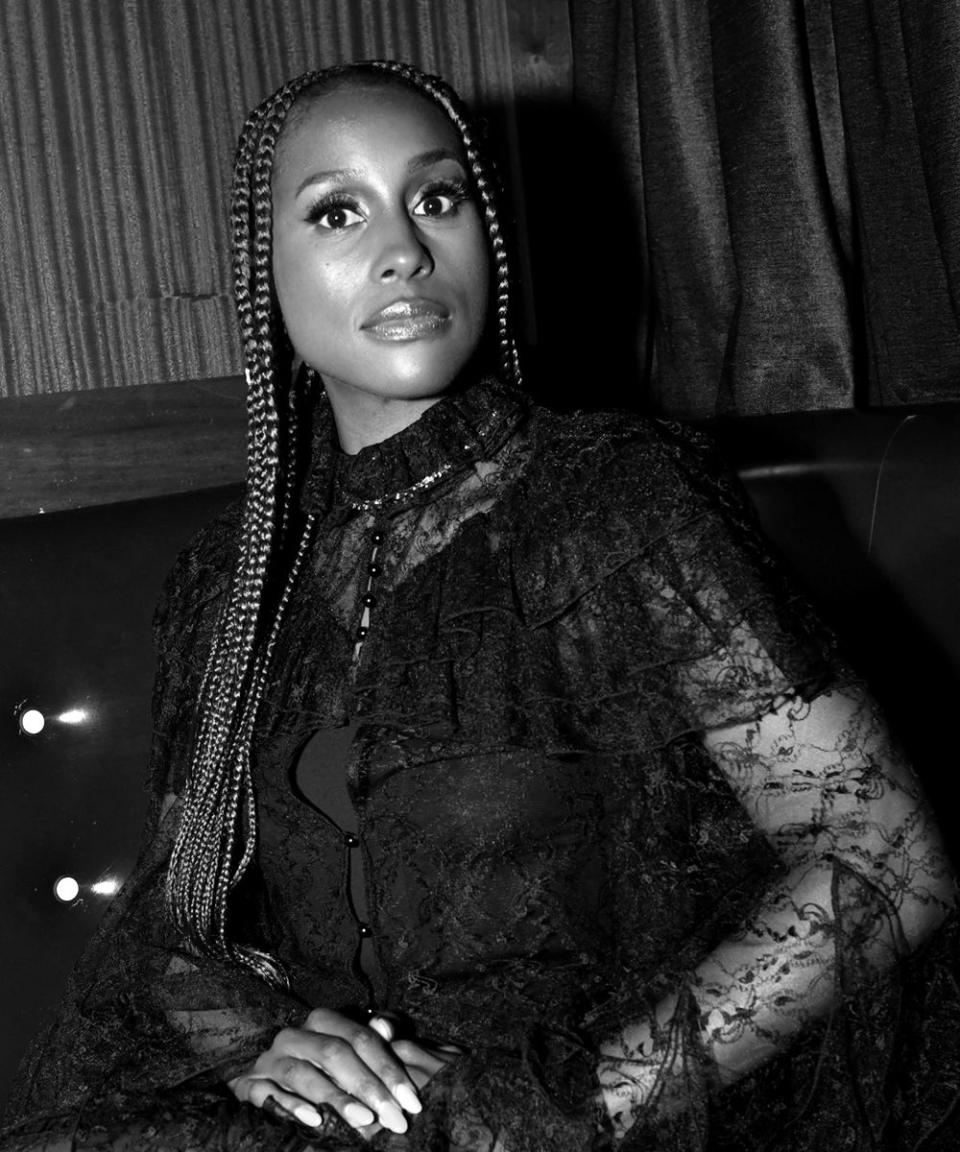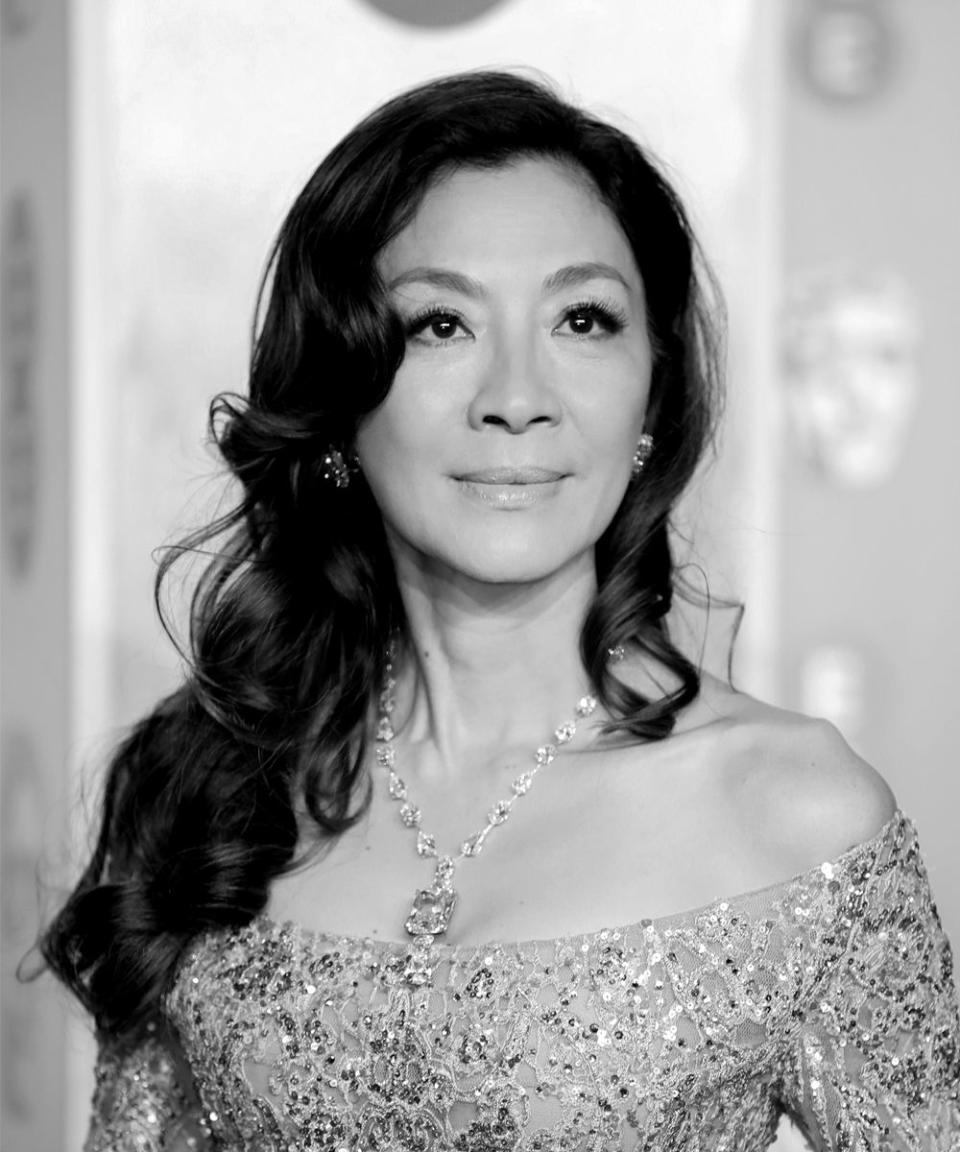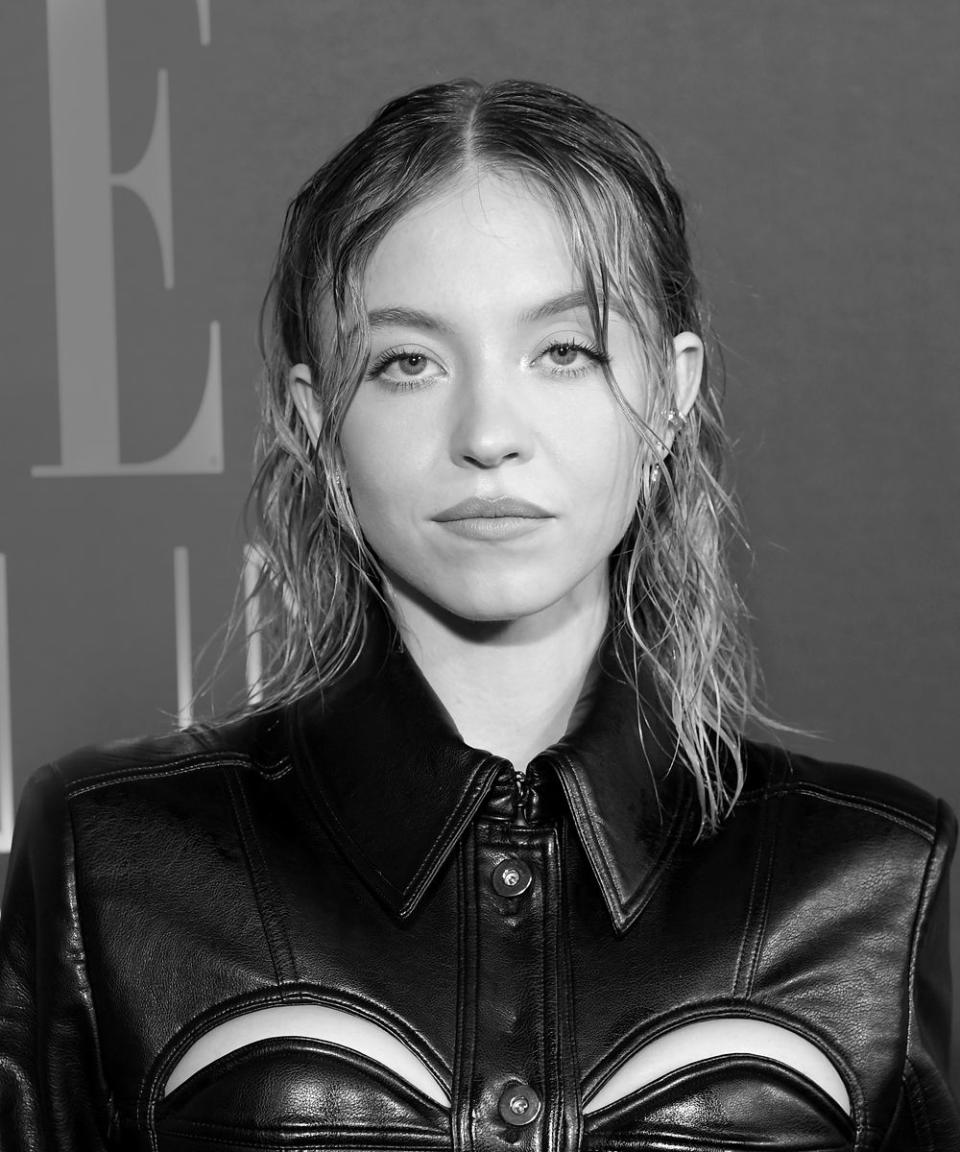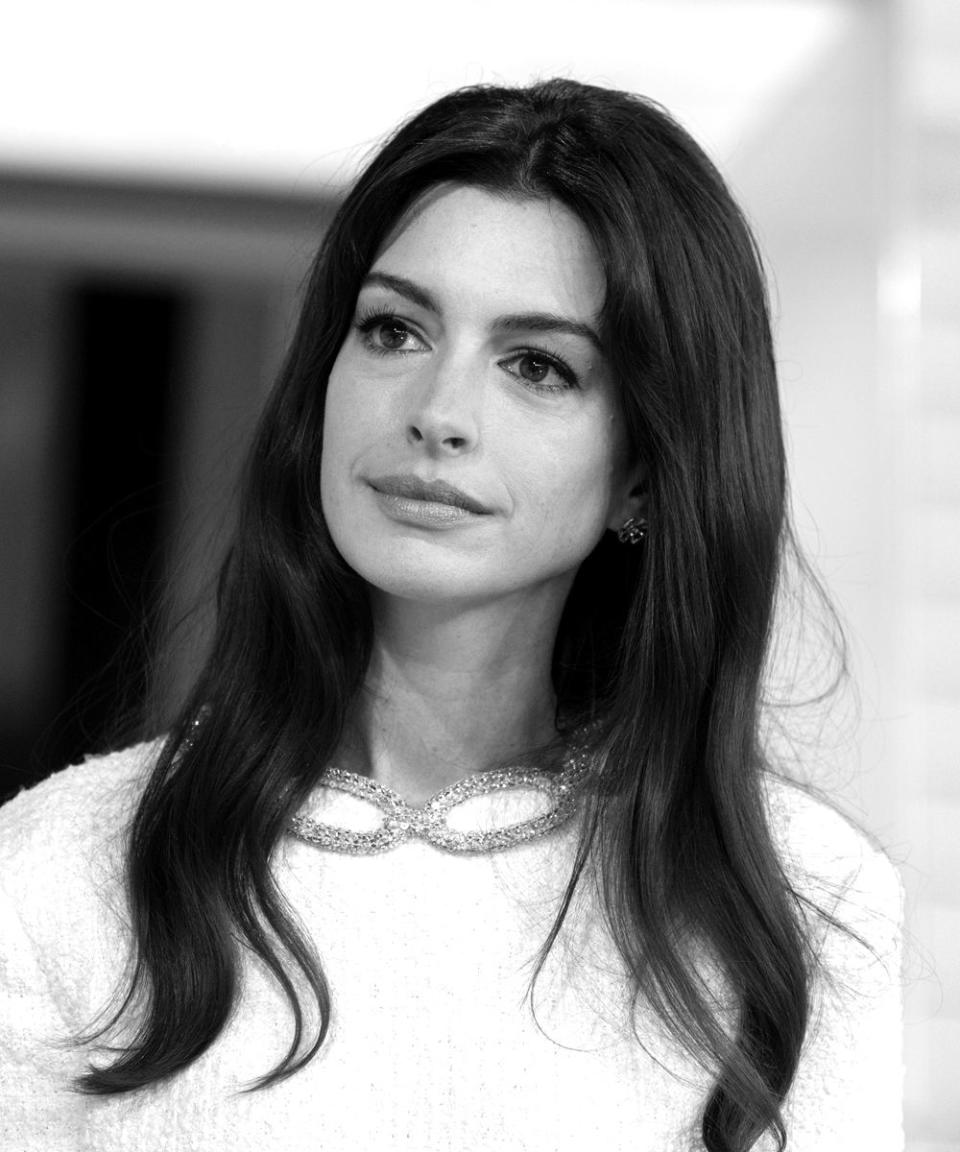ELLE’s 2022 Women in Hollywood Sound Off on #MeToo

- Oops!Something went wrong.Please try again later.
- Oops!Something went wrong.Please try again later.
This year, to mark the fifth anniversary of the Weinstein investigation and #MeToo going viral worldwide, ELLE commissioned a survey with the Hollywood Commission, an organization dedicated to stopping discrimination, harassment, and abuse in the industry, in order to gauge what workers at all levels in Hollywood think of the progress that has been made in the past five years. We learned a lot, and you can read the full results here:
In addition to the survey, we also wanted to hear directly from our 2022 Women In Hollywood about what they think has changed, and what more needs to be done. Here’s what they had to say:
Issa Rae

On what has changed for women in Hollywood post-#MeToo:
“Sadly, not much. It feels like we’re regressing, depressingly so. There are just too many enablers for there to be real change. People have to be held accountable. There have to be legitimate consequences. Hollywood is very bad about consequences. It’s literally the worst industry when it comes to punishing people for misdeeds and actions, because money will always reign supreme. That’s something that, even by working in this industry, we’re enabling. So it’s hard. What I have realized is that I can control my own environment and who I work with. I can hold people accountable within my world and my bubble. I don’t have to work for everybody. All money isn’t good money. All people aren’t good people.”
On what more needs to be done:
“It starts with a backbone. While I don’t support people jumping to immediate conclusions and I think it’s entirely fair for investigations to happen, I think it’s extremely important to, like the mantra says, ‘Listen to women.’ I’m gonna be real, the stuff that’s happening with Ezra Miller is, to me, a microcosm of Hollywood. There’s this person who’s a repeat offender, who’s been behaving atrociously, and as opposed to shutting them down and shutting the production down, there’s an effort to save the movie and them. That is a clear example of the lengths that Hollywood will go to to save itself and to protect offenders. So, don’t do that, and women may be able to thrive. They won’t have to live in fear of keeping silent because it’ll ruin their careers. It’s just a constant pattern of abuse that’ll only persist if Hollywood continues to insist on being this way.”
Olivia Wilde

How #MeToo has changed Hollywood for women, five years later:
“There’s a much stronger sense of community. We were kept in separate rooms for a long time.... [Women] could realize, ‘Wait a minute, why have I been told you’re my competitor? You’re not. You’re actually my partner. How convenient that they told us we were competitors.’ It feels now that there is a basic understanding of our collective power. And I think a deeper, stronger sense of support within women in general in Hollywood.”
On the challenges that remain:
“[Give women] second chances. When women make a film that doesn’t make money, oftentimes it is the end of their directing career, and I think I’m sort of an exception to that, because Booksmart didn’t make a ton of money. It was more of a cultural zeitgeist moment. It touched a nerve, but it did not touch pocketbooks. I wouldn’t want it any other way, but I recognize how lucky I am that I have been given another chance.”
“A director’s second film is really a test of the strength, the support they have around them in Hollywood, and I think if you are a woman, it is very difficult to get money for your second film. Even directors who achieved some great success. So I think that if something could change, it would be to give women as many chances as men are given.”
Michelle Yeoh

On progress for women in Hollywood:
“In our business, it has always been very hard because, especially in the past, it has been much more of a man’s world and women have had to fight a lot harder to be where they are. Now, I’m very happy and proud to see many more women in the positions that they deserve to be in.”
“We as women are just asking for equal opportunities. Let us show what we can do. I did not set out to fight against stereotypes; I only forged that path because I felt that I didn’t want to be put in a box.”
Sigourney Weaver

On the impact of the #MeToo movement:
“It’s a huge change because of the open communication between women. In my day, of course, there were these horrors going on. One friend would tell someone else, ‘Be careful of this guy.’ So it was all kind of under the radar. And to have it out in the open and to see Harvey Weinstein punished and to see these men having abused their leadership positions for decades losing their jobs—we certainly have a long way to go, because the trauma stays with women—but I feel it was a huge sea change, and so welcome.”
“It’s ongoing. These are habits that are hard to change. It’s just like former governor Andrew Cuomo. He has three daughters. He couldn’t see what he was doing. We can see it, but he couldn’t. It’s just amazing to me that these men think, ‘Oh no, but I’m special.’ They’re lucky. That’s why they’re wearing makeup on the weekend, to look good for me. No, stupid man. The egotism involved is just unbelievable.”
“I was lucky because I was 28 when I did Alien and Ripley was my first role. I don’t think anyone tried anything after that in case I had a flamethrower in my purse. When you’re younger, it would be very, very, very hard to see what not to do, what situations not to put yourself in, because it’s a business that does involve a lot of trust. You’re baring your soul for the camera, for fellow actors. When I think of so many women being taken advantage of, especially when they’re young.… To me, it’s a miracle that [#MeToo] happened, and thanks to the journalists and the women who came forward, who showed such courage.”
Sydney Sweeney

On what’s changed in Hollywood post-#MeToo:
“Women are having more of a voice and standing up for themselves. I love that I’m able to see so many more female filmmakers and female crew members, especially in the camera department, because it’s definitely a male dominated space. Whenever I see a camerawoman, I’m like, ‘Yay.’ But everybody still has so much growing to do. I think that we should never stop trying to better ourselves.”
Zoë Kravitz

On what’s changed in Hollywood post-#MeToo:
“We became trendy. [Laughs.] It’s cool in a way. When I was trying to find a director of photography for my movie and I wanted a woman, I couldn’t find one. All of the DPs who are female are booked, because that’s cool now or because people are paying more attention. If people are afraid to say they didn’t like a piece of art because it was made by a woman, it feels to me that we aren’t allowing it to truly affect us. Art isn’t about liking. It’s about emotion, debate. Art is about conversation.”
Ariana DeBose

On what has changed for women in Hollywood post-#MeToo:
“There’s been some movement forward. I think the introduction of intimacy coordinators has been a huge step in the right direction regarding keeping women safe in intimate circumstances. But I don’t know that we’ve cracked that egg. It’s hard to know. Even sitting here, it’s hard to know if we’ve made real change. I do see more women on sets. And that’s important. For specifically men, it feels like there’s a tone of fear around being accused. So, I can’t tell if there’s been change or if folks are just scared.”
“I would like to believe that there’s been meaningful change. And, like I said, I do see more women on sets. And when I’m on a set, I try to create great relationships with my producers and with anyone that I’m working with. Everyone on that set matters. So, if I see something, I say something. But everybody operates differently. And so, you never really know set to set to set what’s going on.”
On what women need to feel more supported in Hollywood:
“Fewer men. No, no, no [laughs]. What we need is to be listened to. I want women in positions of power. And I want clear and concise leadership. And I want women to be listened to. I also want thoughtful engagement. When I say something, I want you to thoughtfully engage with me, so we can collaborate to find solution.”
“The world isn’t fair. We know that. We live in it every day. I think women need to stop being afraid. There’s no need for fear anymore. Our own Supreme Court just stripped us of our bodily autonomy. We have absolutely nothing to lose. So, if you need to go out there and you need something, just say it. There’s nothing keeping you between you and what you need or what you want or your goal. The only thing that’s keeping you from that, is you. Try to make sure you are holding yourself accountable for what’s keeping you from your goals. Sometimes it’s external forces, and sometimes it’s you.”
Anne Hathaway

On #MeToo, five years later:
“We’ve seen the beginning of the industry becoming safer. It requires constant vigilance, particularly because we are still at the beginning, and because we have such a long way to go. But the removal of the worst actors was a really significant step.”
“The creation of space for women’s voices, and then the recognition that the first voices that were favored were usually white—that needed to be corrected as well.”
“I don’t think we can expect to turn the page and for all the problems to be gone. That’s just not reality. It’s not going to work like that. It’s going to be something that we have to work at every single day, every single meeting. Like at a press conference, when you see male journalists speaking over female journalists, you stop and you do what you can, when you can. You try to be part of a larger trend toward safety, equality, and humanity.”
“So I have found the developments to be promising, but I also want to acknowledge that the world I came of age in was in very poor shape, and so any positive change is going to feel significant to me.”
You Might Also Like

